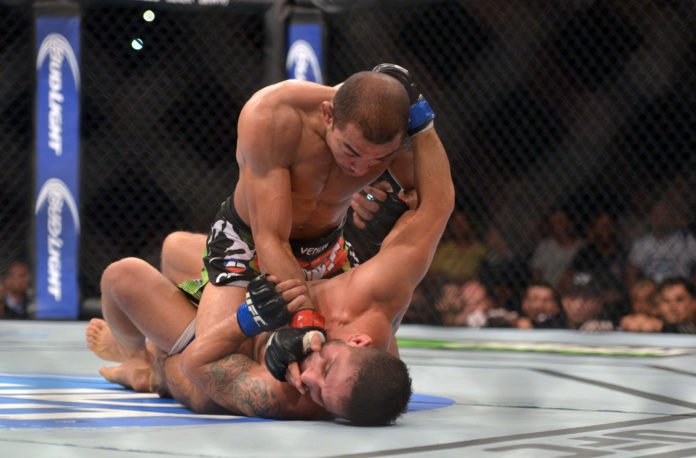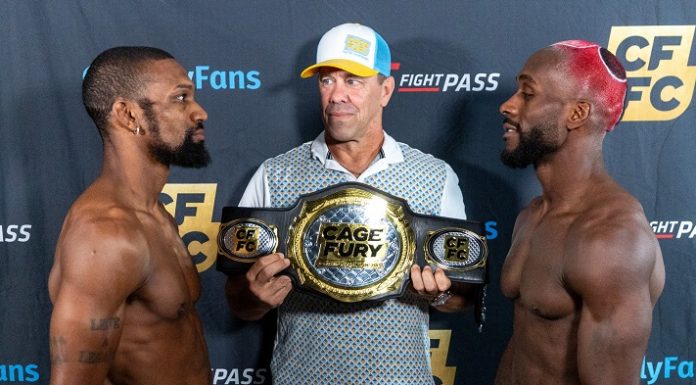
A new study out of Canada has found no link between UFC events and domestic violence. While that may come as no surprise to most MMA fans, it’s important to remember that one of the key factors keeping MMA out of New York, for example, were accusations that the sport encouraged domestic violence. Of course, those statistics were essentially cherry picked, and the ban against MMA struck down in 2016. Yet the domestic violence angle remains a favorite of the sport’s current detractors. That makes this new study, The Connection between Professional Sporting Events, Holidays and Domestic Violence in Calgary, Alberta, rather interesting, albeit for a relatively “small” test area. The City of Calgary boasts a population of about 1.2 million.
The study, published in the University of Calgary’s School of Public Policy Publications, looks at a number of sporting events, as well as holidays, for correlations in spikes in domestic violence calls to police and a special domestic and sexual abuse hotline known as Connect. Among the sports included were NHL hockey, CFL (Canadian Football League) football, mixed martial arts (specifically the UFC), and boxing. The Super Bowl and The Calgary Stampede were also included.
Overall, the results showed that the “Super Bowl had no statistically significant influence on DV calls, nor did UFC fights.” The study compared four years of daily data from 2011 to 2014, though it does not list exactly which UFC events were examined. It also found that there was no apparent uptick in domestic violence associated with Calgary Flames (NHL) hockey games, but did find some evidence linking football to an increase in DV calls. “Grey Cup games in which Calgary played were associated with a 40 per cent increase in reports of domestic violence” the report stated, noting that regular season games where Calgary played rival Edmonton resulted in a fifteen percent increase in calls.
One of the study’s authors, Lana Wells, told the CBC that “the non-relationship between Ultimate Fighting Championship and domestic violence rates suggests that the level of contact or violence in the sport is not as important as the rivalry or the high stakes of the games that we found to be significant with the Stamps playing in the Grey Cup or against the Edmonton Eskimos.”
While it’s not the final word in the debate, it would be interesting to see similar studies done with a wider subject base. While much of the MMA ban in New York stemmed from a feud between the Culinary Union and Station Casinos (owned by the Fertitta brothers, who owned and operated the UFC’s former parent company Zuffa), every now and then a renewed attack on the sport pops up. A ban on mixed martial arts in Western Australia was only lifted recently. The sport remains banned in France, though domestic violence does not appear to be part of that conversation.



















